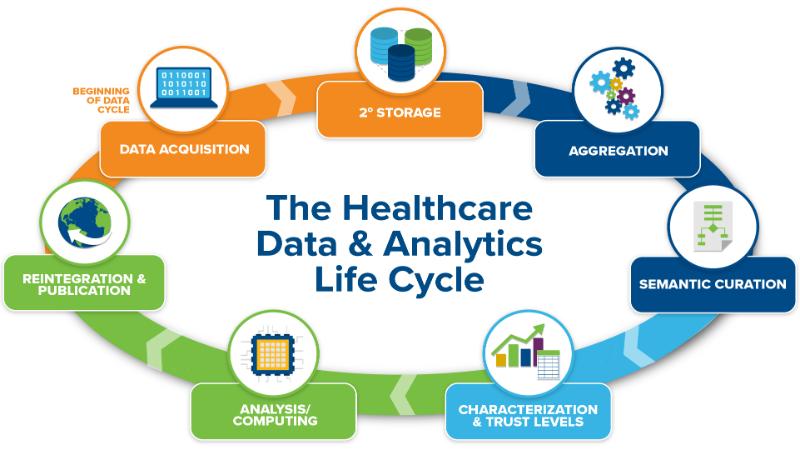
Frequently Asked Questions
The HDOC is part of the Health Data Oversight Program which was established in response to the UC Office of the President (UCOP) interim operating guidelines outlined in the President’s Ad Hoc Task Force (2018)
on Health Data Governance report which recommended the development of a process for evaluating projects and transactions involving access to UC Health data by outside parties and making decisions about appropriate access.
In addition, the HDOC executive committee established four working subcommittees to oversee the use of data throughout the health data lifecycle.
The HDOC benefits the organization by focusing on all UC Davis Health missions (clinical, operations, and research), assessing data and analytics needs, providing transparent processes, and creating best practices and standards. Subcommittees that evaluate data sharing and advanced analytics requests assist requesters in achieving their goals while being responsible and safe with health data.
In 2024, the UC Office of the President followed up with the UC Health Data Governance Task Force Report which contains several recommendations aimed to improve data management practices, enhance the quality and security of health data, and support better decision-making within the UC Health system.
The HDOC executive committee only evaluates requests escalated from one of its subcommittees. Additionally, most of the subcommittees evaluate requests that are escalated to them on behalf of another UC Davis Health group. For example, you may be referred to the Data Sharing Committee from a reporting group, a contracting office, Innovation Technology, or the Institutional Review Board (IRB).
However, if you are planning to implement an analytic model for clinical or clinical-research use, the Analytics Oversight Committee should be consulted directly.
The four subcommittees oversee specific areas of the health data lifecycle, and therefore they operate separately. Each subcommittee is composed of subject matter experts as well as key leaders across UC Davis Health involved in the specific domain. Additionally, the subcommittees are active in developing policies and best practices, evaluating specific requests, prioritizing work queues, and developing tools to analyze requests. Please visit the SharePoint sites (left side menu) for more information on the scope and charge of each subcommittee.

If you have a request that goes through IT, the individual handling the request will refer you to an HDOC subcommittee if necessary.
If your request involves implementation of analytics with a vendor, you may end up working with both the DSC and the AOC.
In addition to visiting the subcommittee website pages and SharePoint sites (left side of the page), you are welcome to contact the HDOC team for additional information or a consultation.
Please contact the HDOC team for more information or to schedule an HDOC overview presentation.
For subcommittee specific information, please contact the program manager, listed below:
Program Manager: Rachelle Carson
- Analytics Oversight Committee (AOC)
Program Manager: MaryBeth Colvin
- Data Management Committee (DMC)
- Data Sharing Committee (DSC)
- Request Prioritization Committee (RPC)
The following are some of the resources available to help our organization be good stewards of our data. As additional resources become available, they will be added, so please check the subcommittee SharePoint sites found on the left side of this page.
- DMC Data Provisioning Best Practices Guide (DP BPG): Framework for qualifying trust in data, covering requirements gathering, data validation, and documentation
- DMC Data Governance Best Practices Guide (DG BPG): Supplement to the DP BPG, this guide sets standards establishing asset accountability, ownership, documentation, signoff, and ongoing quality assurance
- DMC Collibra Playbook: Introduction to the enterprise-wide data catalog, including the structure, roles, and responsibilities, as well as guidance on which assets belong in the catalog
- DSC Data Sharing Preliminary Assessment Tool: Self-Assessment tool to determine whether your project requires a comprehensive DSC review
The Health Data Oversight program strives to serve all missions of the organization including clinical operations and research.
- The Request Prioritization Committee has developed data request scoring that ensures data requests for data exploration are appropriately prioritized
- The Data Sharing Committee works closely with the IRB in order to streamline processes for researchers to share data with academic research collaborators
We will continue to focus on process improvement and to support and enable researchers in their endeavors.

